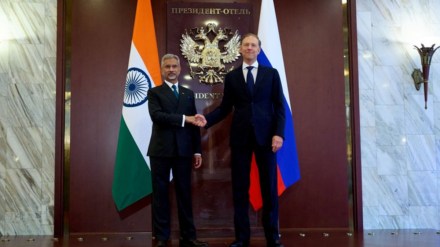Russian oil and other energy supplies will continue to reach India, with Moscow also eyeing new opportunities for LNG exports, Russia’s First Deputy Prime Minister Denis Manturov said on Wednesday.
Manturov, who co-chaired the 26th session of the India-Russia Intergovernmental Commission on Trade, Economic, Scientific-Technological and Cultural Cooperation, said Russia is still sending crude oil, oil products, and different types of coal to India. He added, “We see potential for exporting Russian LNG.”
External Affairs Minister S Jaishankar, who arrived in Moscow on Tuesday for a three-day visit, led the talks in Moscow from India side.
India-Russia nuclear energy cooperation has potential to grow
Manturov also highlighted nuclear energy as an area where cooperation could grow, pointing to the Kudankulam nuclear power project in Tamil Nadu as an example of successful collaboration.
He further said that trade between the two countries is now largely done in national currencies, with more than 90 percent of payments settled this way. This, he said makes transactions easier in the current global scenario. He added that both countries plan to deepen ties in the banking and insurance sectors to support this.
After the meeting, Jaishankar posted on social media that the two sides had held “detailed discussions” across a wide range of areas such as trade, agriculture, energy, industries, skills, mobility, education, and culture. He said he was confident that these talks would strengthen the “time-tested India-Russia partnership“.
‘Bilateral trade in goods increased more than five-fold’: Jaishankar
Jaishankar further added that goods trade between India and Russia has grown from $13 billion in 2021 to $68 billion in 2024-25. However, he pointed out that this growth has also created a serious trade imbalance that now needs urgent attention.
He noted that the trade gap has widened from $6.6 billion to nearly $59 billion, which is almost nine times higher than before.
The minister also said that the talks are taking place against a challenging geopolitical backdrop, but stressed that the leaders of both countries remain in close contact.
